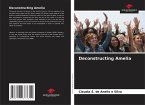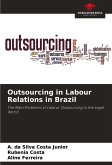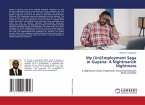In legal language, unfitness has two meanings: physical and professional. Physical unfitness, as used in this study, is a de facto inability to carry out a given activity, which, when established, may justify an accommodation measure. The legal treatment of worker unfitness is not a new subject. However, its study from a teleological angle has often been lacking. This is why, after considering the aim pursued by the Cameroonian legislator in regulating this phenomenon, it emerges that he was seeking the full development of the worker despite his vulnerability. This involves both protecting their jobs and safeguarding their health. However, the unsatisfactory treatment accorded to non-occupational inaptitude somewhat undermines the legislator's laudable objective. Fortunately, the present study offers effective and lasting solutions.
Bitte wählen Sie Ihr Anliegen aus.
Rechnungen
Retourenschein anfordern
Bestellstatus
Storno








